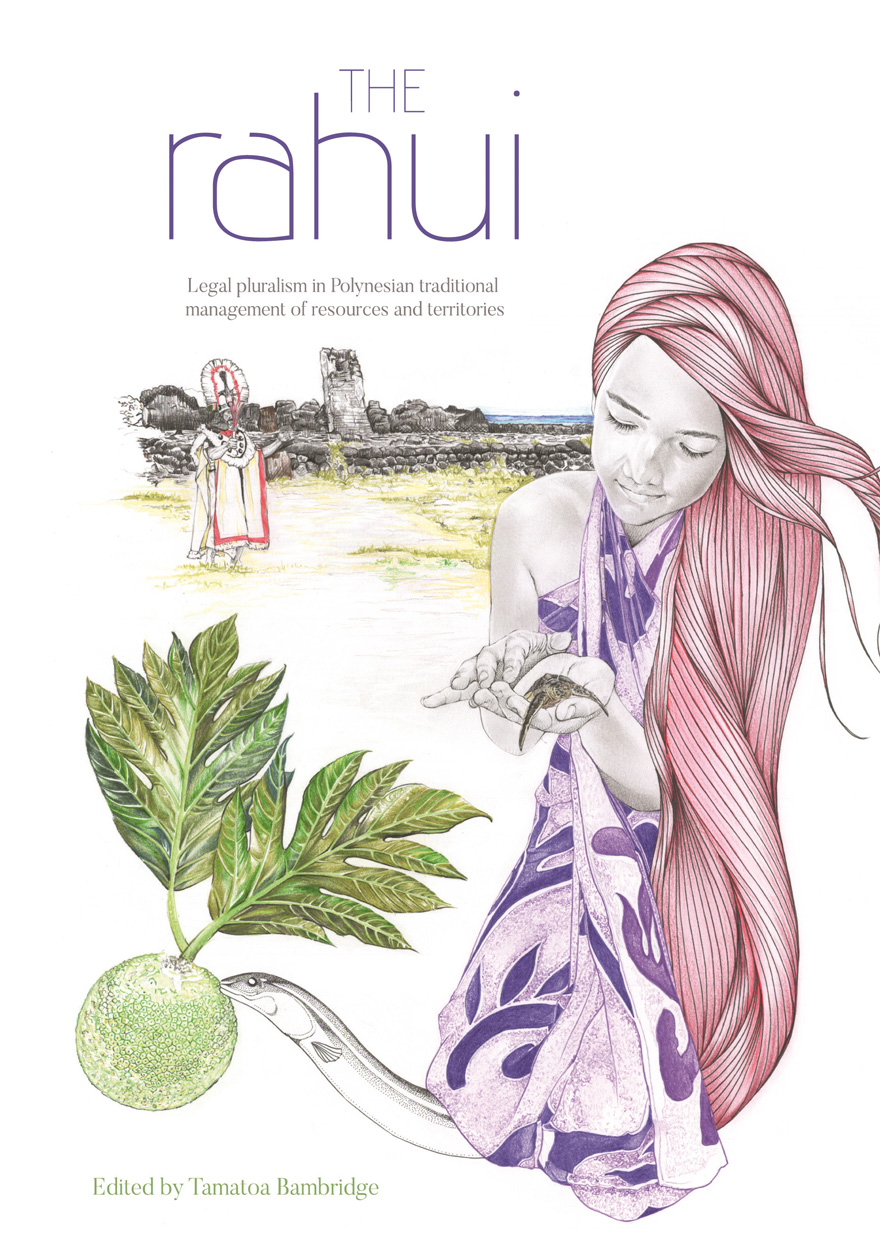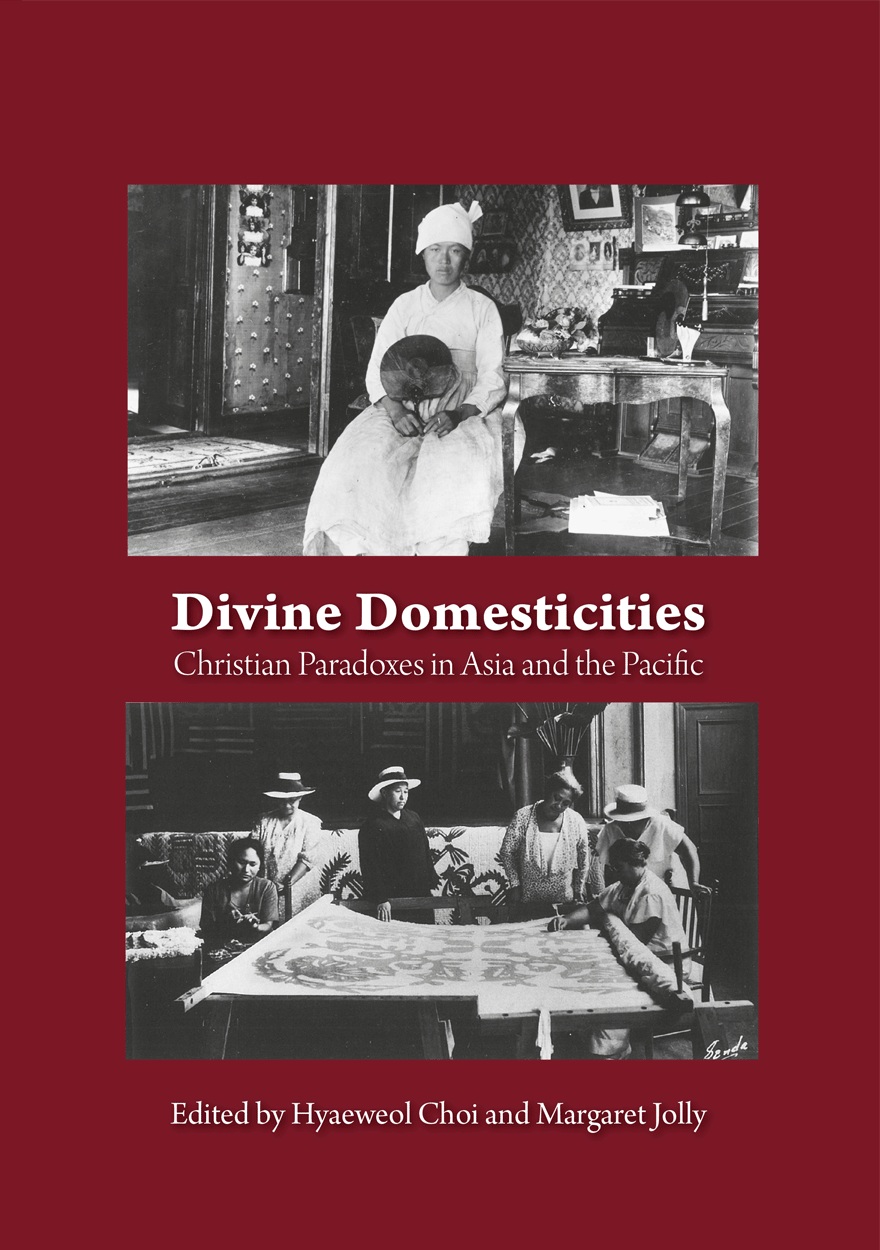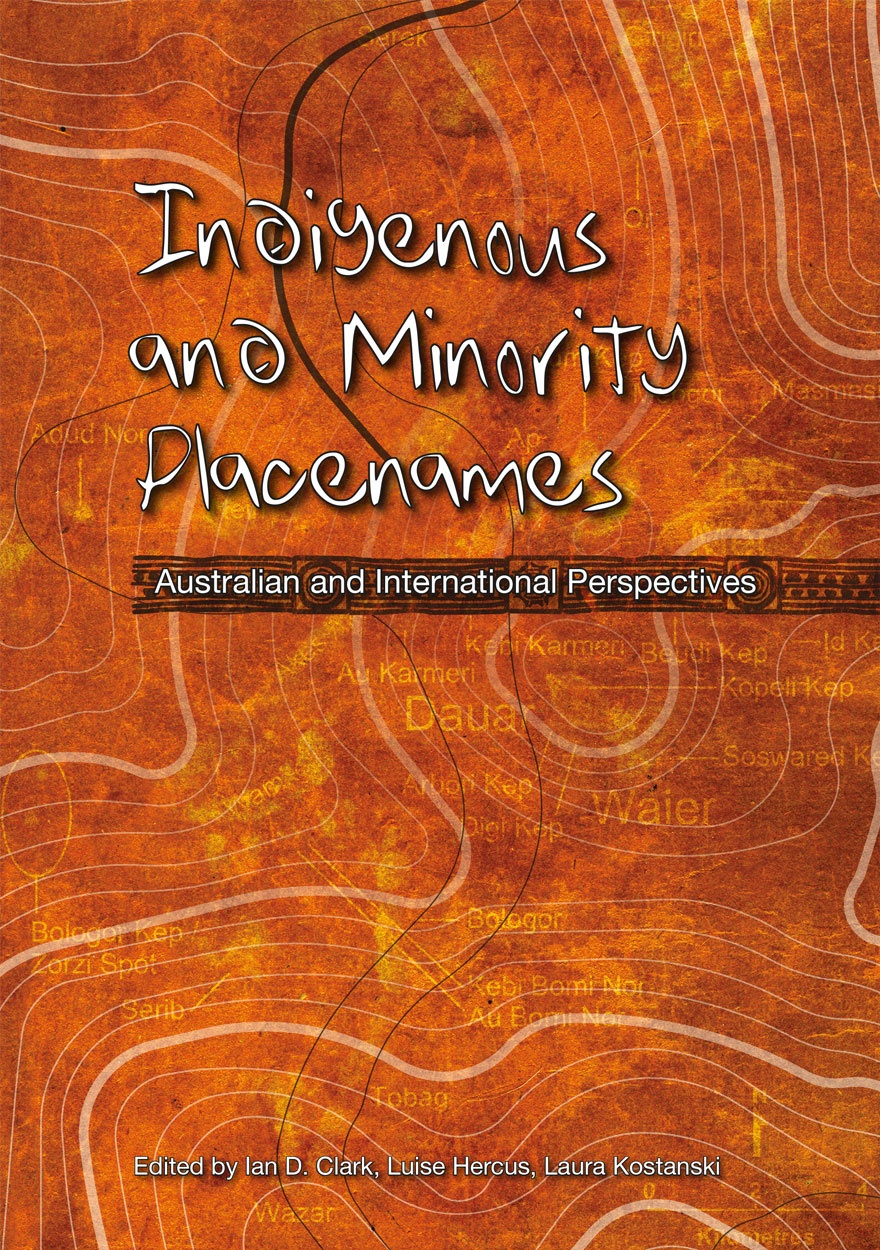Search titles
Displaying results 61 to 70 of 112.

Engaging Indigenous Economy »
Debating diverse approaches
Edited by: Will Sanders
Publication date: April 2016
The engagement of Indigenous Australians in economic activity is a matter of long-standing public concern and debate. Jon Altman has been intellectually engaged with Indigenous economic activity for almost 40 years, most prominently through his elaboration of the concept of the hybrid economy, and most recently through his sustained and trenchant critique of policy. He has inspired others also to engage with these important issues, both through his writing and through his position as the foundation Director of The Australian National University’s Centre for Aboriginal Economic Policy research from 1990 to 2010.
The year 2014 saw both Jon’s 60th birthday and his retirement from CAEPR. This collection of essays marks those events. Contributors include long‑standing colleagues from the disciplines of economics, anthropology and political science, and younger scholars who have been inspired by Jon’s approach in developing their own research projects. All point to the complexity as well as the importance of engaging with Indigenous economic activity — conceptually, empirically and as a strategic concern for public policy.

The Rahui »
Legal pluralism in Polynesian traditional management of resources and territories
Edited by: Tamatoa Bambridge
Publication date: March 2016
This collection deals with an ancient institution in Eastern Polynesia called the rahui, a form of restricting access to resources and/or territories.
While tapu had been extensively discussed in the scientific literature on Oceanian anthropology, the rahui is quite absent from secondary modern literature. This situation is all the more problematic because individual actors, societies, and states in the Pacific are readapting such concepts to their current needs, such as environment regulation or cultural legitimacy. This book assembles a comprehensive collection of current works on the rahui from a legal pluralism perspective. This study as a whole underlines the new assertion of identity that has flowed from the cultural dimension of the rahui. Today, rahui have become a means for indigenous communities to be fully recognised on a political level. Some indigenous communities choose to restore the rahui in order to preserve political control of their territory or, in some cases, to get it back. For the state, better control of the rahui represents a way of asserting its legitimacy and its sovereignty, in the face of this reassertion by indigenous communities.

Maudu' »
A Way of Union with God
Authored by: Muhammad Adlin Sila
Publication date: November 2015
This volume offers a fascinating case study of the Sayyid community of Cikoang in South Sulawesi – in particular, an examination of the role of the descendants of Sayyid Jalaluddin al-‘Aidid, a Hadhrami merchant-teacher of great authority and charisma who is said to have initially settled in Gowa in the 17th century. It is of particular interest because the migration of Sayydid Jalaluddin occurred well before the major Hadhrami diaspora to Southeast Asia in the mid-19th century. Of particular interest is the way Sayyid Jalaluddin and his descendants became integrated within the Makassar community.
Sayyid Jalaluddin’s legacy to the Cikoang community is the Tarekat Bahr ul-Nur, whose mystic teachings expound the creation of the world from the ‘Nur Muhammad’. A consequence of this teaching is an enormous emphasis on the celebration of Maudu’ (Maulid or the Birth of the Prophet) as expressed in the local assertion: ‘My existence on this earth is for nothing but Maudu’.’ Every year this prompts the Cikoang community to hold one of the most elaborate and colourful Maulid celebrations in Indonesia.
This study was originally submitted as an MA thesis at ANU in 1998, but soon became recognised as an important contribution to Hadhrami studies. Its author, M. Adlin Sila, has since gone on to complete his PhD at ANU, Being Muslim in Bima of Sumbawa, Indonesia: Practice, Politics and Cultural Diversity. This study of Bima and its religious history establishes him as a major researcher on the diverse traditions of Islam in eastern Indonesia.

Strings of Connectedness »
Essays in honour of Ian Keen
Edited by: P.G. Toner
Publication date: September 2015
For nearly four decades, Ian Keen has been an important, challenging, and engaging presence in Australian anthropology. Beginning with his PhD research in the mid-1970s and through to the present, he has been a leading scholar of Yolngu society and culture, and has made lasting contributions to a range of debates. His scholarly productivity, however, has never been limited to the Yolngu, and he has conducted research and published widely on many other facets of Australian Aboriginal society: on Aboriginal culture in ‘settled’ Australia; comparative historical work on Aboriginal societies at the threshold of colonisation; a continuing interest in kinship; ongoing writing on language and society; and a set of significant land claims across the continent. In this volume of essays in his honour, a group of Keen’s former students and current colleagues celebrate the diversity of his scholarly interests and his inspiring influence as a mentor and a friend, with contributions ranging across language structure, meaning, and use; the post-colonial engagement of Aboriginal Australians with the ideas and structures of ‘mainstream’ society; ambiguity and indeterminacy in Aboriginal symbolic systems and ritual practices; and many other interconnected themes, each of which represents a string that he has woven into the rich tapestry of his scholarly work.

Taxonomic Tapestries »
The Threads of Evolutionary, Behavioural and Conservation Research
Edited by: Alison M. Behie, Marc F. Oxenham
Publication date: May 2015
This volume explores the complexity, diversity and interwoven nature of taxonomic pursuits within the context of explorations of humans and related species. It also pays tribute to Professor Colin Groves, whose work has had an enormous impact on this field. Recent research into that somewhat unique species we call humankind, through the theoretical and conceptual approaches afforded by the discipline of biological anthropology, is showcased. The focus is on the evolution of the human species, the behaviour of primates and other species, and how humans affect the distribution and abundance of other species through anthropogenic impact. Weaving together these three key themes, through the considerable influence of Colin Groves, provides glimpses of how changes in taxonomic theory and methodology, including our fluctuating understanding of speciation, have recrafted the way in which we view animal behaviour, human evolution and conservation studies.

Name, Shame and Blame »
Criminalising Consensual Sex in Papua New Guinea
Authored by: Christine Stewart
Publication date: December 2014
Papua New Guinea is one of the many former British Commonwealth colonies which maintain the criminalisation of the sexual activities of two groups, despite the fact that the sex takes place between consenting adults in private: sellers of sex and males who have sex with males. The English common law system was imposed on the colonies with little regard for the social regulation and belief systems of the colonised, and in most instances, was retained and developed post-Independence, regardless of the infringements of human rights involved.
Now the HIV pandemic has thrown a spotlight, not altogether welcome, on the sexual activities of these two groups. In Papua New Guinea, a growing body of behavioural research has focused on such matters as individual sexual partnering, condom use and awareness of HIV. My work, however, has a different purpose. I chose the terms in the title to highlight a nexus which I believe exists between the criminal law and negative attitudes of society. At an international level, the argument has been put that decriminalising sex work and sodomy will facilitate HIV epidemic management, reducing the stigma and discrimination these groups encounter and making them easier to reach. I undertook my research therefore with the aim of gaining deeper understanding of the effects the current situation of criminalisation might have on the social lives of these criminalised people today, in the country generally and in Port Moresby the capital in particular, and whether these effects might provide evidence to support the argument for law reform.
This is a rich and well-researched study of the legal, social and moral issues surrounding the criminalisation of two forms of consensual sex…. A very impressive piece of work, it is extensively documented, relies on a wide range of material and makes a clear and coherent argument about the place of law in producing identities and exclusions…. The attention to change over time and the complexity of the ways in which sexual behaviour is enacted and punished is a particular strength of the book.
—Professor Sally Engle Merry, Anthropology, Law and Society, New York University
This book is an exceptional contribution to our knowledge of the nexus between the criminal law and negative attitudes of society, and what effects criminalization has on the social lives of prostitutes and males who have sex with males, and whether these effects might provide evidence to support the argument for law reform…. The author’s experience of Papua New Guinea allows her to comment in depth on such matters as the United Nations’ human rights approach to the HIV epidemic and their call to decriminalize all sexual acts between consenting adults…. She shows that criminal laws—with the help of the normative discourse of religion and media—underpin and legitimize high levels of stigma, discrimination and abuse of prostitutes and males who have sex with males…. The quality of the writing and general presentation are exceptional.
—Laura Zimmer-Tamakoshi, Truman State University (retired)

The Naturalist and his 'Beautiful Islands' »
Charles Morris Woodford in the Western Pacific
Authored by: David Russell Lawrence
Publication date: October 2014
‘I know no place where firm and paternal government would sooner produce beneficial results then in the Solomons … Here is an object worthy indeed the devotion of one’s life’.
Charles Morris Woodford devoted his working life to pursuing this dream, becoming the first British Resident Commissioner in 1897 and remaining in office until 1915, establishing the colonial state almost singlehandedly. His career in the Pacific extended beyond the Solomon Islands. He worked briefly for the Western Pacific High Commission in Fiji, was a temporary consul in Samoa, and travelled as a Government Agent on a small labour vessel returning indentured workers to the Gilbert Islands.
As an independent naturalist he made three successful expeditions to the islands, and even climbed Mt Popomanaseu, the highest mountain in Guadalcanal. However, his natural history collection of over 20,000 specimens, held by the British Museum of Natural History, has not been comprehensively examined. The British Solomon Islands Protectorate was established in order to control the Pacific Labour Trade and to counter possible expansion by French and German colonialists. It remaining an impoverished, largely neglected protectorate in the Western Pacific whose economic importance was large-scale copra production, with its copra considered the second-worst in the world.
This book is a study of Woodford, the man, and what drove his desire to establish a colonial protectorate in the Solomon Islands. In doing so, it also addresses ongoing issues: not so much why the independent state broke down, but how imperfectly it was put together in the first place.
David Russell Lawrence is an anthropologist who has managed environmental programs in Melanesia and Southeast Asia for the Great Barrier Reef Marine Park Authority. His most recent book was a re-examination of the place in Melanesian anthropology of the Finnish sociologist Gunnar Landtman who spent two years working with the Kiwai people of the lower Fly estuary. He recently managed a large-scale survey of 300 communities in the Solomon Islands for the Community Sector Program and has assisted with a number of the annual RAMSI People’s Surveys in the islands. This work has given him insight into the colonial heritage of the Solomon Islands and a desire to tell the story of the establishment of the British Solomon Islands Protectorate through the eyes of the first Resident Commissioner, Charles Morris Woodford.

A Political Memoir of the Anglo-French Condominium of the New Hebrides »
Authored by: Keith Woodward
Publication date: October 2014
Keith Woodward has produced an inside account of the intricacies of official politics in the latter stages of the history of the Anglo-French Condominium of the New Hebrides, which will be essential reading for anyone interested in the colonial period of Vanuatu. Woodward spent 25 years in the New Hebrides (1953 to 1978) based in the British Residency and it is his long service which makes his memoir so informative and important. Following a fascinating and insightful description of Port Vila and the New Hebrides when he arrived in the 1950s, Woodward focuses the rest of his memoir on issues relating to the difficulties the British faced in convincing the French that the two powers should come to an agreement on decolonisation of the New Hebrides—that is, to establish a process of constitutional advancement leading ultimately to independence.
— Howard Van Trease, Honorary Research Fellow, Emalus Campus, University of the South Pacific, Port Vila
This is a highly original, evocative and engaging memoir which offers an insightful firsthand account of colonial administration, bilateral French and British relations, political change and decolonisation in Vanuatu. It addresses some lacunae in the historiography of Vanuatu and dispels a number of assumptions about French intentions there. It will be of great benefit to people interested in Vanuatu, and more broadly in political change in the Pacific, constitutional arrangements, decolonisation, French-British relations, and particularly the divergent colonial policies of France and the United Kingdom.
— Gregory Rawlings, Anthropology, University of Otago

Divine Domesticities »
Christian Paradoxes in Asia and the Pacific
Edited by: Hyaeweol Choi, Margaret Jolly
Publication date: October 2014
Divine Domesticities: Christian Paradoxes in Asia and the Pacific fills a huge lacuna in the scholarly literature on missionaries in Asia/Pacific and is transnational history at its finest. Co-edited by two eminent scholars, this multidisciplinary volume, an outgrowth of several conferences/seminars, critically examines various encounters between western missionaries and indigenous women in the Pacific/Asia … Taken as a whole, this is a thought-provoking and an indispensable reference, not only for students of colonialism/imperialism but also for those of us who have an interest in transnational and gender history in general. The chapters are very clearly written, engaging, and remarkably accessible; the stories are compelling and the research is thorough. The illustrations are equally riveting and the bibliography is extremely useful.
—Theodore Jun Yoo, History Department, University of Hawai’i
The editors of this collection of papers have done an excellent job of creating a coherent set of case studies that address the diverse impacts of missionaries and Christianity on ‘domesticity’, and therefore on the women and children who were assumed to be the rightful inhabitants of that sphere … The introduction to the volume is beautifully written and sets up the rest of the volume in a comprehensive way. It explains the book’s aim to advance theoretical and methodological issues by exploring the role of missionary encounters in the development of modern domesticities; showing the agency of indigenous women in negotiating both change and continuity; and providing a wide range of case studies to show ‘breadth and complexity’ and the local and national specificities of engagements with both missionaries and modernity. My view is that all three aims are well and truly fulfilled.
—Helen Lee, Head, Sociology and Anthropology, La Trobe University, Melbourne

Indigenous and Minority Placenames »
Australian and International Perspectives
Publication date: August 2014
This book showcases current research into Indigenous and minority placenames in Australia and internationally. Many of the chapters in this volume originated as papers at a Trends in Toponymy conference hosted by the University of Ballarat in 2007 that featured Australian and international speakers. The chapters in this volume provide insight into the quality of toponymic research that is being undertaken in Australia and in countries such as Canada, Finland, South Africa, New Zealand, and Norway. The research presented here draws on the disciplines of linguistics, geography, history, and anthropology. The book includes meticulous studies of placenames in central NSW and the Upper Hunter region; Gundungurra cave names; western Arnhem Land; Northern Cape York Peninsula and Mount Wheeler in Queensland; saltwater placenames around Mer in the Torres Strait; and the Kaurna in South Australia.
For more information on Aboriginal History Inc. please visit aboriginalhistory.org.au.



